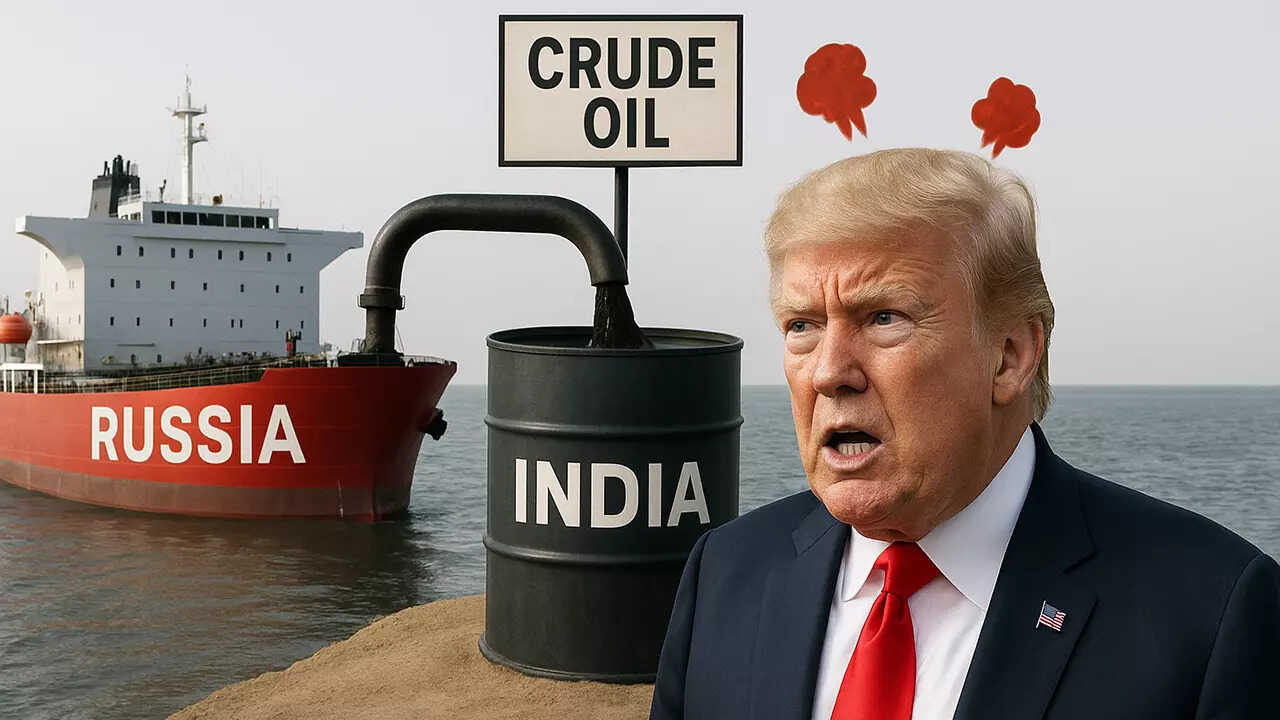US President Trump imposed a 25% tariff on India for its Russian crude oil trade, claiming it cost Russia a major client. Trump’s remarks came after his recent decision to implement a 50% tariff on India’s exports to the US, citing India’s oil trade with Russia as the reason.
A Shift in the Sands: Is India Recalibrating its Oil Strategy?
For a while, it felt like a geopolitical certainty: Russia, facing sanctions from much of the West, found a willing and eager buyer in India for its discounted crude oil. This partnership, born of necessity and opportunity, redrew global energy maps and reshaped trade dynamics. But whispers are now suggesting a potential shift in this seemingly rock-solid arrangement, a change that could have significant consequences for all involved.
The narrative began with a stark statement, delivered by none other than Donald Trump before a meeting with Vladimir Putin. The claim? Russia has “lost an oil client, which is India.” While the veracity of this assertion is still being debated, it has undeniably ignited a flurry of speculation and analysis. Could this be a mere political jab, or does it reflect a genuine recalibration of India’s energy strategy?
The past two years have witnessed India emerge as a major importer of Russian crude. Western sanctions, intended to cripple Russia’s economy, inadvertently opened a door for India to secure cheaper oil, fueling its booming economy and providing much-needed relief to consumers facing rising energy prices. The relationship was mutually beneficial. Russia found a vital market for its oil, and India secured a cost-effective energy source.
However, recent reports suggest a potential cooling in this relationship. Several factors could be contributing to this shift. One key element is the increasing pressure from the United States and its allies. While India has maintained its sovereign right to pursue its own energy interests, the threat of secondary sanctions looms large.
The mere mention of such sanctions, particularly those that could impact India’s access to Western financial markets and technology, is enough to give any government pause. The US has not been quiet in expressing its concern about the level of Russian oil flowing into India and its potential to undermine the sanctions regime.

Another crucial factor is the narrowing price differential. As global oil markets stabilize and alternative supply chains emerge, the discount on Russian crude may be diminishing. If the cost advantage of importing Russian oil significantly decreases, India might find it more appealing to diversify its sources and return to traditional suppliers.
Moreover, India’s own refining capacity and diversification efforts are playing a role. Indian refineries are becoming increasingly sophisticated and adaptable, capable of processing a wider range of crude grades. This increased flexibility allows India to explore alternative sources, reducing its dependence on any single supplier. Additionally, the nation is heavily investing in renewable energy sources, aiming to transition to a more sustainable and diversified energy mix in the long term. This long-term energy independence goal, while decades in the making, slowly chips away at the need for Russian oil.
What could be the consequences of a shift in India’s oil import strategy? For Russia, losing a major client like India would undoubtedly be a significant blow. It would force Russia to seek alternative markets, potentially at even greater discounts, further straining its economy.
For India, the impact would be more nuanced. Diversifying its energy sources could lead to slightly higher import costs, at least in the short term. However, it would also strengthen India’s position in the global arena, mitigating the risk of secondary sanctions and fostering stronger relationships with other energy-producing nations. Read more about [India’s renewable energy goals here](internal-link-to-related-article).
The future of the India-Russia oil partnership remains uncertain. While the relationship has served both countries well in recent times, geopolitical pressures, economic realities, and India’s long-term energy goals are all conspiring to potentially reshape the dynamics of this crucial energy corridor.
Ultimately, the direction India takes will depend on a complex interplay of factors. However, one thing is clear: the global energy landscape is constantly evolving, and India’s strategic decisions will have far-reaching implications for both itself and the wider world.







